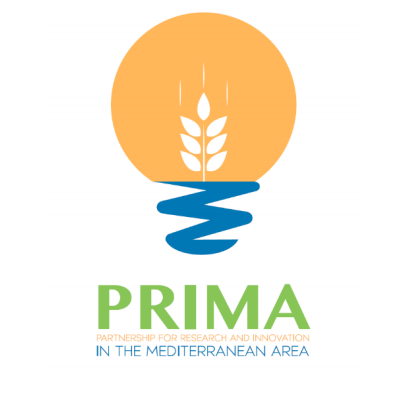
PRIMA Section 1 – Farming Systems 2019
Deadline: Jul 16, 2019
CALL EXPIRED
CALL EXPIRED
Fisheries and Food
Agriculture
Agrifood
Food Safety
Young Farmers
Social Farming
Sustainable Development
Chemicals
Nutrition
Pollution
THEMATIC AREA:
Farming systems
TOPIC:
Topic 1.2.1 Conserving water and soil in Mediterranean dry-farming, smallholder agriculture
TYPE OF ACTION:
RIA Research and Innovation action
TOTAL INDICATIVE AMOUNT ALLOCATED TO THIS CALL:
EUR 4.5 million
OPENING DATE:
17 December 2018
DEADLINE;
Stage 1 Pre-proposals - 28th February, 2019 (17:00h CET)
Stage 2 Full proposals - 16th July, 2019 (17:00h CET)
RIA – Topic 1.2.1: Conserving water and soil in Mediterranean dry-farming, smallholder agriculture
Challenge
Research results have proven that conservation agriculture[1], as part of agro-ecological practices, has the capacity to increase crop water availability, and to control soil erosion. However, its adoption in Mediterranean environments has been moderate to date. This is particularly true for the smallholders prevailing in the region. Their vulnerability and limited access to specific farming machinery, the difficulties in maintaining crop residues on the ground and avoiding soil compaction, and the lack of alternative crops to temperate cereals adapted to conservation agriculture can partially explain this moderate adoption rate. This in spite of indications that conservation agriculture can reduce labour and energy costs. Profitable and successful applications of conservation agriculture to arable and perennial crops require understanding local agro-systems and socioeconomic barriers. Addressing the barriers limiting the adoption of conservation agriculture considering agroecology innovations will increase the sustainability of their farming operations and to the conservation of soil and water in the region.
Scope
Mediterranean crops agroecology, systems and farmers can benefit from the widespread application of conservation agriculture in the region. While conservation agriculture has been widely adopted in semiarid regions in North and South America and Australia, large opportunities remain for its application in the Mediterranean Area. Action is required to increase crop water availability and to control soil erosion. A socioeconomic analysis is required to identify the barriers preventing widespread application of these techniques. The vulnerability of the smallholder farmers in the region, the availability of specific machinery, the competition for residues, the control of weeds and the lack of alternative crops to temperate cereals adapted to conservation agriculture stand as candidate variables explaining the situation. Research and innovation proposals should foster local stakeholders’ cooperation in the identification of technical, policy and socioeconomic barriers preventing the adoption of conservation agriculture. Proposals should also address technical barriers through the development of site-specific solutions in demonstration sites located in different agro systems.
Local conservation agriculture adopters and/or local long-term experiments should be identified characterized and their systems, in terms of resources conservation and profit, should be evaluated. Proposals should also consider capacity building activities addressed to farmers in the region to foster adoption of conservation agriculture. Proposals should also develop societal, technological and policy innovations facilitating the adoption of Conservation Agriculture in the region.
Expected impact
Proposals should contribute to implement priorities set in the PRIMA SRIA and show the clear link of how expected impacts from the projects are going to implement the expected outputs indicated in PRIMA SRIA.
The project results must contribute to PRIMA Operational Objective 4/ SMART AND SUSTAINABLE FARMING[2] 3
The project results are expected to contribute to:
- Reduced and optimised use of scarce natural resources (water, energy, nutrients) and potentially toxic substances (synthetic pesticides, mineral fertilizers, antibiotics) in agriculture;
- Redesigned cropping systems, more resilient to climate uncertainties, based for example on crop associations, agro-forestry, multi-crop rotations, and enhancement of pulses and other leguminous plants;
- Demonstrate increased rainfall water availability and water use efficiency for Mediterranean dry farming crops;
- Improved (more, better, safer) production of Mediterranean crops with efficient water management;
- Improved knowledge of soil erosion mechanisms to enhance fertility under conditions of water scarcity and to develop management recommendations for soil conservation;
- Improved knowledge of the technical, spatial and organizational dynamics of Mediterranean production systems to promote adoption of innovations by farmers also by integrating farmers’ knowledge in the innovation process.
Public link: Only for registered users
 PRIMA
PRIMA
Please Log In to See This Section